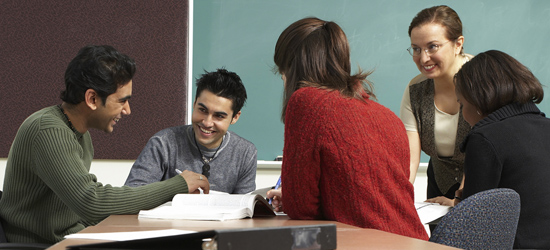Everyone is familiar with traditional education. You sit in a class and a teacher teaches. This is an important part of development. But at some point, every individual has to take charge of their own education. To do this, one must look at the root of learning. What is it that makes some experiences add tremendous value to our lives while other experiences do not?
On a very basic level, experiences that are unfamiliar usually add more value than experiences that are familiar. This is because unfamiliar experiences require much more of our attention, which means we are in a better state to learn something new. Obviously, this concept must be used in moderation. Someone who never experiences the same thing twice will never have a chance to benefit from anything learned, but in general, new experiences are what make people interesting and push them to grow.
High school is a new experience. College is a new experience. However, at some point traditional education becomes repetitive–not in the sense that you won’t learn anything else–but in the sense that the environment is so familiar that it is easy to become less aware of your experience and not learn as much.
To counter this, an individual who wants to be in a state of constant learning needs to introduce new experiences into their life. Spending a summer in a different part of the country. Learning a new language through trial and error. Going to a drive-in movie (or some other entertainment event that is new to you). These are all things that can stretch and expand your experience in life.
These types of experiences often result in very little “book knowledge”. However, they will often provide you with a better understanding of yourself as you experience your reaction to different situations. They will also provide you with a better understanding of others’ viewpoints and background which can be invaluable in working effectively with others.
Becoming a well rounded human isn’t something that happens by accident. You can spend your entire lifetime developing your potential.
Originally published August 14, 2007.

Perfectly said, Mark.
An interesting way I found of having new experiences is simply this – resolving to have atleast one new experience a day.
That new experience may not be terribly moving all the time, but it generally leads to interesting new circumstances.
A simple start could be having something one has never had in a restaurant. Or calling up a person you would like to have called long ago but havent. Or saying “hi” to a stranger you are attracted to.
Thank you Mark. :)
Stages and working in your field it’s a way to improve and gain experience, but also exercises and laboratory work is a must for a college program. The famous Cone of Experience says that people remember little of what they read, but much of what they do.
Education has changed so much in the last decade. There are lots of educational philosophies, but experience is still the best teacher.
I agree lifelong learning is something we all do but often not by concious choice.
If we make learning decisions on a more concious level we can achieve much higher results.
With the power of the net now it is easy to find information but often it provides overload. I think the time is ripe for good credible souces to step to the fore do you agree?